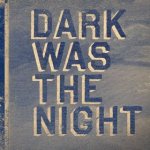
Various Artists Dark Was The Night
(4AD Records)
Charity albums are usually a pretty shaky proposition with the emphasis of the album often on the cause rather than the actual music. The tunes are often cast-offs or largely uninspired and/or unoriginal covers with most artists saving their best work for their own records. Dark Was The Night doesn’t avoid all of these pitfalls but fares better than most compilations of this nature. The 31-track album was devised by Aaron and Bryce Dessner of the National to raise money and awareness for AIDS foundation, the Red Hot Organisation.
The album recalls the similarly conceived 1993 AIDS fund-raiser No Alternative which featured the likes of Nirvana, Sonic Youth and Pavement; the record standing as some type of definition of alternative-rock. Similarly Dark Was The Night represents a roll call for the who’s who of today’s indie-folk scene featuring a mixture of older and more recent indie darlings. The Arcade Fire? Check. Sufjan Stevens? Check. Yo La Tengo? Check. A couple of members from Broken Social Scene? Check. And so on and so forth. Let’s just start by saying there’s nothing groundbreaking here. (Except perhaps the Sufjan track but he seems to be an exception to most rules). Most of the artists have slipped into their most generic, polite, Obama-supporting personas. However this is not to say the album isn’t enjoyable and featuring so many high caliber artists, almost all the songs are good and some really hit the mark.
Opening highlight Knotty Pine combines veteran David Byrne with modern art-rock band Dirty Projectors with stellar results. The song is short but it is energised and inspired; Byrne managing to bring focus to the often rambling indulgence of the Projectors. Another highlight on the first disc is The National’s own track, an original titled So Far Around the Bend which conjures up notions of a long lost love who has drifted into a bohemian existence, nostalgic for the nineties, “praying for Pavement to get back together.” Matt Berninger is backed by a charming woodwind and string arrangements revealing the band at their least brooding and the song is a delight. Yeasayer’s Tightrope with its jangly percussion and dreamy chant is also joyful.
Antony invests Dylan’s I Was Young When I Left Home with a deep regret and sadness which is quietly beautiful. Indie kid’s dream team, Death Cab’s Ben Gibbard and Feist, cover Vashti Bunyan’s Train Song and the duet is lonesome and lovely. Iron and Wine and Bon Iver both contribute some new tunes which resemble good quality off-cuts; Beam’s tune sounds like it was taken from Our Endless Numbered Days and Vernon’s track could have easily slipped alongside the songs of his debut. Both are predictable but wistful nonetheless.
Sufjan Stevens' cover of the Castanets’ You Are The Blood is the compilation’s longest track clocking in at just over ten minutes, revealing Stevens' talent to use every instrument and piece of equipment available to him. The song is nothing short of epic with its zany keyboards, shimmering percussion, distorted electronics and high-pitched vocals. The song builds into something gothic and creepy, other times ecstatically joyful and also crests into something more soft and peaceful. While the track may divide fans, it undoubtedly proves that Stevens is one of the most creative artists around.
So onto the second disc where the Arcade Fire offer up an unreleased track from the Neon Bible sessions. Channeling Bowie, Lenin rumbles to a start as the almost honkey-tonk piano pounds its way into a joyful dancing stomp which offsets the dire lyrics of, “Daddy, daddy, please save the world from the government.” It is a track the band probably left off the set list when they played for Obama last month and while not the best Arcade Fire song, it is one of the more upbeat tunes on the compilation.
Highlights on this side include Dave Sitek’s cover of the Troggs’ With a Girl Like You. It has TV On The Radio written all over the track’s dense production, sonic fuzz and delightful horns. Sitek’s husky, deep baritone invests the song with a weird affection. Yo La Tengo’s Gentle Hour opens with a lovely haze swirling around the rumble of a beautiful piano melody. The song is surreal and gentle, recalling the dreamy landscapes of Galaxie 500.
Cat Power’s version of Amazing Grace is pretty predictable material and demonstrates Marshall’s continued transformation into banal soul singer. Bird’s cover of the Handsome Family’s The Giant Illinois is rich and lush revealing the musician’s knack for layering melodies, even if the result here is slightly underwhelming. Some may be quick to dismiss Oberst’s duet of Lua with Gillian Welch as a lazy trade-off but the cover of his own song aches with a numbing and affecting loneliness.
Many of the loveliest tracks on Dark Was The Night are collaborations. A song that slipped my mind was Feist’s other collaboration, this time teaming up with Grizzly Bear to cover their song Service Bell; the new version bearing a beautiful and delicate otherworldliness. It is these collaborations which hint at something bigger than the songs themselves. There is the sense of a vague outline forming behind the indie-folk scene, artists who respect each other and believe in the musical scene they are creating; a movement which is a lot stronger than suggested by the gentle chords they strum.
